« Return to all search results
Title Search Results
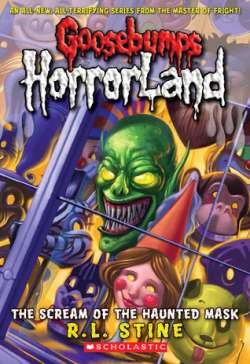
It's a whole new ride from master of horror and bestselling author R.L. Stine--with a story so fiendish that it can't be contained to just one book! What should Carly Beth be for Halloween this year? TERRIFIED! Late at night, an ugly green mask is mysteriously calling out to her, and ugly green masks don’t like to be ignored. If Carly Beth survives the night, even a scary theme park might sound like a vacation. Or maybe not! At HorrorLand, every night is Halloween. And those monster masks? They aren’t masks.
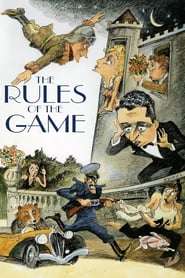
The Rules of the Game, by Jean Renoir, is a scathing critique of corrupt French society cloaked in a comedy of manners in which a weekend at a marquis’ country château lays bare some ugly truths about a group of haut bourgeois acquaintances. The film has had a tumultuous history: it was subjected to cuts after the violent response of the premiere audience in 1939, and the original negative was destroyed during World War II; it wasn’t reconstructed until 1959.

Here is a classic novel from one of our most honored writers--the author of such acclaimed works as So Long, See You Tomorrow and All the Days and Nights." The Folded Leaf is the serenely observed yet deeply moving story of two boys finding one another in the Midwest of the 1920s, when childhood lasted longer than it does today and even adults were more innocent of what life could bring.
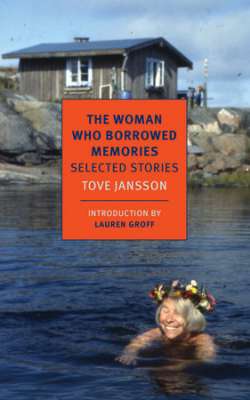
An NYRB Classics Original Tove Jansson was a master of brevity, unfolding worlds at a touch. Her art flourished in small settings, as can be seen in her bestselling novel The Summer Book and in her internationally celebrated cartoon strips and books about the Moomins. It is only natural, then, that throughout her life she turned again and again to the short story. The Woman Who Borrowed Memories is the first extensive selection of Jansson’s stories to appear in English. Many of the stories collected here are pure Jansson, touching on island solitude and the dangerous pull of the artistic impulse: in “The Squirrel” the equanimity of the only inhabitant of a remote island is thrown by a visitor, in “The Summer Child” an unlovable boy is marooned along with his lively host family, in “The Cartoonist” an artist takes over a comic strip that has run for decades, and in “The Doll’s House” a man’s hobby threatens to overwhelm his life. Others explore unexpected territory: “Shopping” has a post-apocalyptic setting, “The Locomotive” centers on a railway-obsessed loner with murderous fantasies, and “The Woman Who Borrowed Memories” presents a case of disturbing transference. Unsentimental, yet always humane, Jansson’s stories complement and enlarge our understanding of a singular figure in world literature.

A haunting novella, Death in Venice tells the story of a man who falls into foolish love, only to reap his own ruin. Gustav von Aschenbach, a dignified but lonely writer in the twilight of his life, is enjoying a Venetian vacation when he notices the taut, lean figure of a Polish boy. His name is Tadzio—and he embodies the sleek perfection of youth. Aschenbach finds himself completely and hopelessly obsessed with this ideal. Death in Venice brims with mythical imagery, exploring the themes of beauty and decay, passion and pestilence. This translation of Nobel laureate Thomas Mann’s work by Jefferson S. Chase includes an additional novella, Tonio Kröger, and the short stories “Tristan,” “Man and Dog: An Idyll,” “Hour of Hardship,” “Tobias Mindernickel,” and “The Child Prodigy.” Translated and with an Introduction by Jefferson S. Chase and an Afterword by Martin Swales
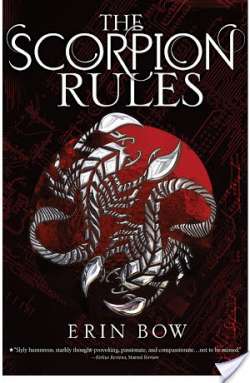
The children of world leaders are held hostage in an attempt to keep the peace in this “slyly humorous, starkly thought-provoking” (Kirkus Reviews, starred review) novel. Greta is a Duchess and a Crown Princess. She is also a Child of Peace, a hostage held by the de facto ruler of the world, the great Artificial Intelligence, Talis. This is how the game is played: if you want to rule, you must give one of your children as a hostage. Start a war and your hostage dies. The system has worked for centuries. Parents don’t want to see their children murdered. Greta will be free if she can make it to her eighteenth birthday. Until then she is prepared to die with dignity, if necessary. But everything changes when Elian arrives at the Precepture. He’s a hostage from a new American alliance, and he defies the machines that control every part of their lives—and is severely punished for it. His rebellion opens Greta’s eyes to the brutality of the rules they live under, and to the subtle resistance of her companions. And Greta discovers her own quiet power. Then Elian’s country declares war on Greta’s and invades the prefecture, taking the hostages hostage. Now the great Talis is furious, and coming himself to deliver punishment. Which surely means that Greta and Elian will be killed...unless Greta can think of a way to break all the rules.
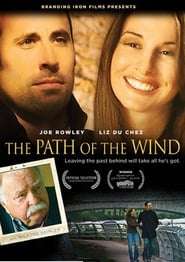
As an ex-convict, Lee Ferguson's biggest desire is to leave his past behind and make a fresh start with Katie, his new love. But when Lee finds out Katie is a Christian, his pre-conceived ideas and her moral standards clash. Through engaging action and drama, this film explores temptation, sin, forgiveness and redemption, while helping seekers and believers understand one another!
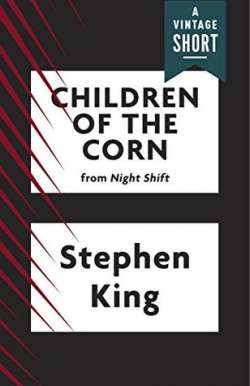
A Vintage Shorts “Short Story Month” Selection Driving through the cornfields in rural Nebraska, Burt and Vicky run over a young boy—only to discover that they may not be responsible for his death. Out in the corn, something is watching them, and help is nowhere to be found. From the unrivaled master of horror and the supernatural, Stephen King. “Children of the Corn,” first collected in the extraordinary collection Night Shift in 1973 and then adapted into a horror film franchise of the same name, is a terrifying and unforgettable classic of the genre. An eBook short.

Each year, when the weather in Istanbul becomes unbearable, the family of Iskender Pasha, a retired Ottoman notable, retires to its summer palace overlooking the Sea of Marmara. It is 1899 and the last great Islamic empire is in serious trouble. A former tutor poses a question which the family has been refusing to confront for almost a century: ‘Your Ottoman Empire is like a drunken prostitute, neither knowing nor caring who will take her next. Do I exaggerate, Memed?’ The history of Iskender Pasha’s family mirrors the growing degeneration of the Empire they have served for the last five hundred years. This passionate story of masters and servants, school-teachers and painters, is marked by jealousies, vendettas and, with the decay of the Empire, a new generation which is deeply hostile to the half-truths and myths of the ‘golden days.’The Stone Woman is the third novel of Tariq Ali’s ‘Islam Quartet’. Like its predecessors—Shadows of the Pomegranate Tree and The Book of Saladin—its power lies both in the story-telling and the challenge it poses to stereotyped images of life under Islam.
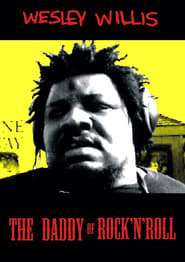
Documentary about the late Chicago artist and musician Wesley Willis. Filmmaker Daniel Bitton follows Willis throughout the Chicago area, riding the bus, talking to friends and strangers alike, selling his CDs to record shops and going about his day. Willis was memorable to many for being schizophrenic as well as 6'6" and over 300 pounds, but was loved by his fans and friends for his quirky, oddball music, artistic talent and for being a real gentle giant. He was a testament to the human drive to survive and create, as he himself was a survivor of extreme poverty, mental illness, child abuse, racism, and obesity. The fact that he lived to see 40 was incredible, but his having a successful music career and being able to function was even more so.
